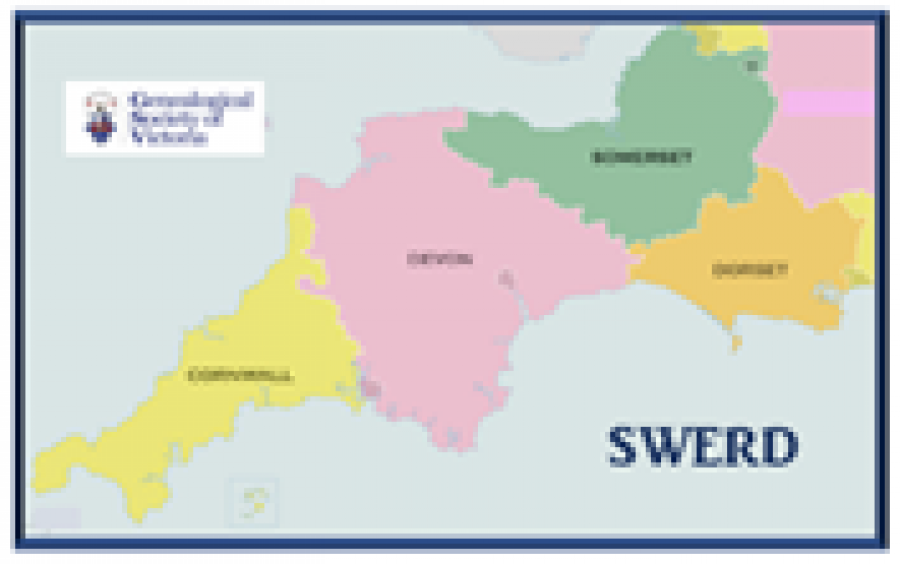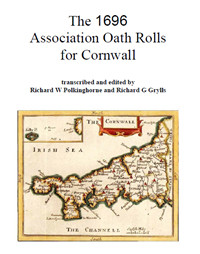New group for Victorian and Tasmanian family history and old maps of South West England
The eight discussion circles convened by the GSV include one on South West England (SWERD) and a new one for Victoria and Tasmania. These Discussion Circles are a great way to share your queries and pool your discoveries.
The Victoria and Tasmania Discussion Circle has just been started. It meets monthly on the 4th Friday of the month at 10.30 am to 11.30 am and is convened by Ruthie Wirtz. Their next meetings are on Fri 28 June and then Fri 26 July. All GSV Members can take part at no cost - it is part of your membership benefits. Ruthie can be contacted at ruthie.wirtz@gmail.com.
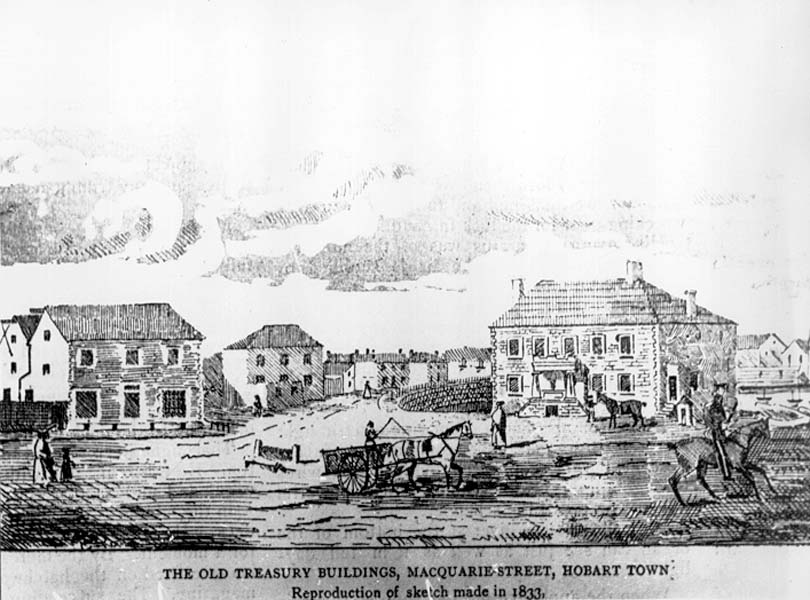
[ Courtesy of Libraries Tasmania Online Collection Item no. PH30/1/2067 ].
At the May meeting of the South West England Research and Discussion Circle (SWERD) they explored the maps of that region. Stephen Hawke, SWERD convenor, reminds us that:
'Maps are a vital (but sometimes under-used) resource for our family history research. Accessing a series of maps produced over decades or centuries is an important part of understanding your ancestors' 'places'. They can reveal changes over time that would have impacted on your ancestors' lives. For example, in Somerset, a mere forty year span between two maps (1782 and 1822) held at GSV gives evidence of the draining of the Levels, the rapid development of coal mines and the growth of towns. Other features of maps such as new roads, turnpikes, canals, railroads etc. provide clues as to how your ancestors moved around the county or further afield. Estate and tithe maps may help pinpoint your ancestors' homes and the land they worked.
Where were the markets, the pubs, and the schools, the cemetery used by your ancestors? Where were the mills, mines, ports and factories that provided work for your ancestors? A little delving and study of old maps can answer many questions and open up new ideas for researching your ancestors' lives.'
In other recent meetings they have discussed the Widows of Cornwall, Devon & Exeter Industrial & Reform Schools, Dorset Machine Breakers, local history resources and the Bristol Hearth Tax.
SWERD next meets on 12 July.


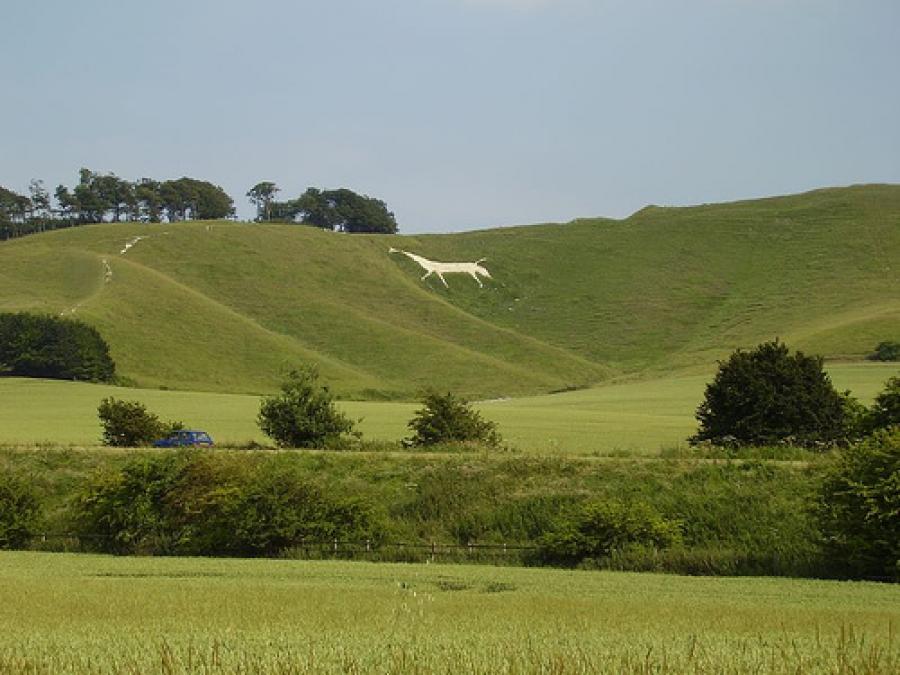

 Portrait of Judge George Jeffreys 1645-1689 - the 'hanging judge' of the Bloody Assizes, by Johann Closterman.
Portrait of Judge George Jeffreys 1645-1689 - the 'hanging judge' of the Bloody Assizes, by Johann Closterman.
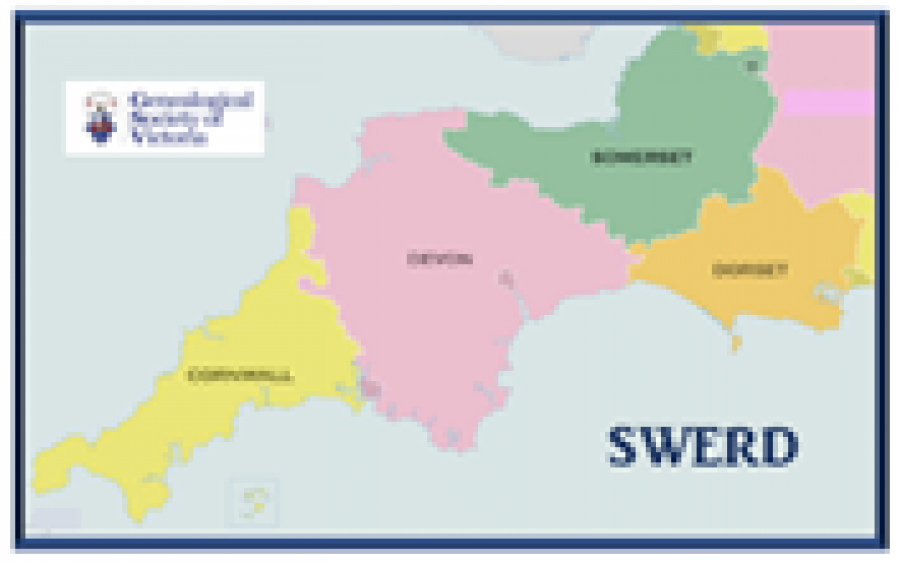
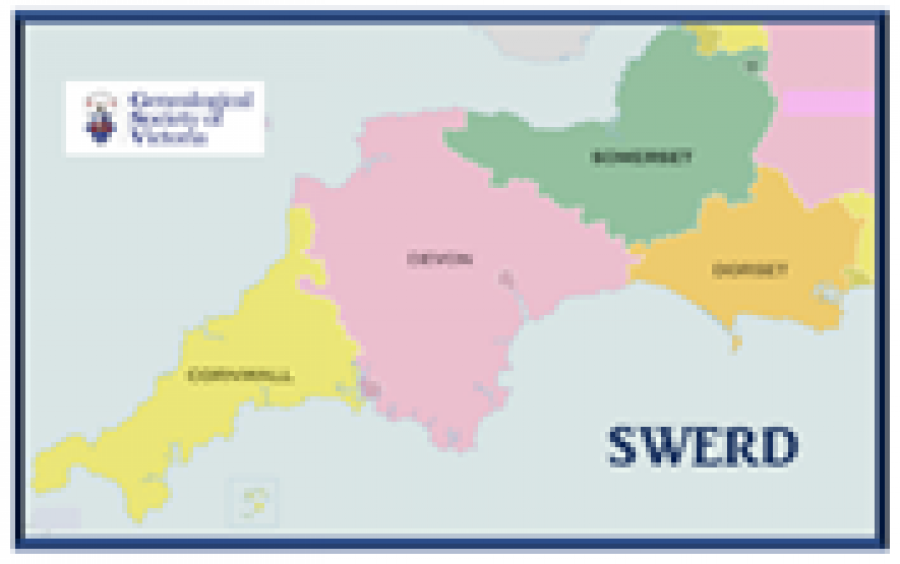
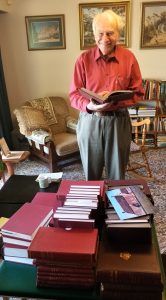 Rev Dr Warren Bartlett OAM with Somerset records, 2018.
Rev Dr Warren Bartlett OAM with Somerset records, 2018.
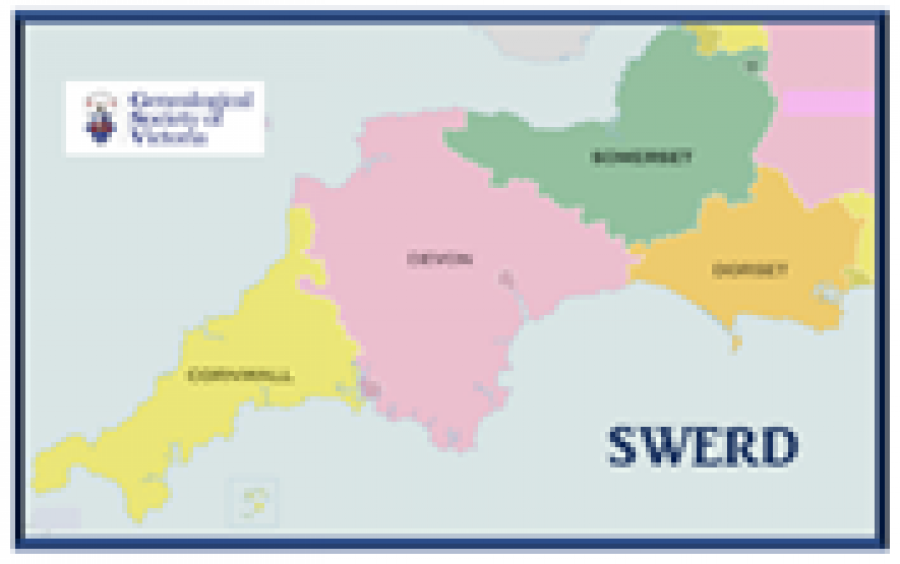
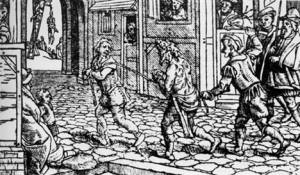 Vagrant being punished in the streets, woodcut c. 1536 (Source unknown)
Vagrant being punished in the streets, woodcut c. 1536 (Source unknown)
